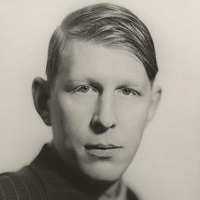Reading Pleasure
A child's reading is guided by pleasure, but his pleasure is undifferentiated; he cannot distinguish, for example, between aesthetic pleasure and the pleasures of learning or daydreaming. In adolescence we realize that there are different kinds of pleasure, some of which cannot be enjoyed simultaneously, but we need help from others in defining them. Whether it be a matter of taste in food or taste in literature, the adolescent looks for a mentor in whose authority he can believe. He eats or reads what his mentor recommends and, inevitably, there are occasions when he has to deceive himself a little; he has to pretend that he enjoys olives or War and Peace a little more than he actually does.
Between the ages of twenty and forty we are engaged in the process of discovering who we are, which involves learning the difference between accidental limitations which it is our duty to outgrow and the necessary limitations of our nature beyond which we cannot trespass with impunity. Few of us can learn this without making mistakes, without trying to become a little more of a universal man than we are permitted to be. It is during this period that a writer can most easily be led astray by another writer or by some ideology. When someone between twenty and forty says, apropos of a work of art, 'I know what I like,'he is really saying 'I have no taste of my own but accept the taste of my cultural milieu', because, between twenty and forty, the surest sign that a man has a genuine taste of his own is that he is uncertain of it.
After forty, if we have not lost our authentic selves altogether, pleasure can again become what it was when we were children, the proper guide to what we should read.
W. H. Auden, in 'The Dyer's Hand'
Between the ages of twenty and forty we are engaged in the process of discovering who we are, which involves learning the difference between accidental limitations which it is our duty to outgrow and the necessary limitations of our nature beyond which we cannot trespass with impunity. Few of us can learn this without making mistakes, without trying to become a little more of a universal man than we are permitted to be. It is during this period that a writer can most easily be led astray by another writer or by some ideology. When someone between twenty and forty says, apropos of a work of art, 'I know what I like,'he is really saying 'I have no taste of my own but accept the taste of my cultural milieu', because, between twenty and forty, the surest sign that a man has a genuine taste of his own is that he is uncertain of it.
After forty, if we have not lost our authentic selves altogether, pleasure can again become what it was when we were children, the proper guide to what we should read.
W. H. Auden, in 'The Dyer's Hand'
Search
On Anger: "For every minute you remain angry, you give up sixty seconds of peace of mind."
Essays
Essays
On Destiny: "Our destiny exercises its influence over us even when, as yet, we have not learned its nature: it is our future that lays down the law of our today."
Human, All Too Human
Human, All Too Human
On Friendship: "A crowd is not company; and faces are but a gallery of pictures; and talk but a tinkling cymbal, where there is no love."
Essays
Essays














